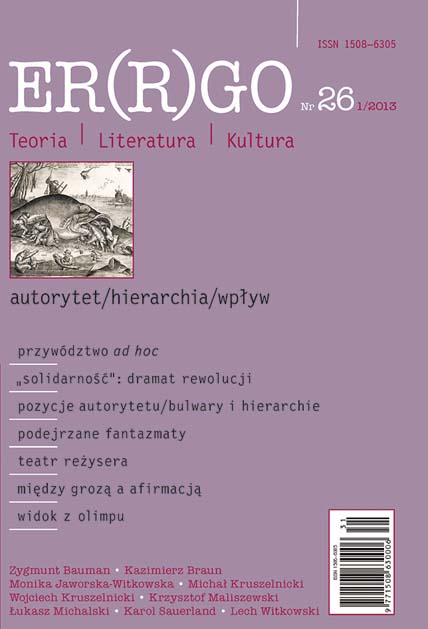Polemiki: Między tragizmem, śmietnikiem i pychą. Próba odpowiedzi moim Znakomitym Polemistom
Dialogues and polemics: Between Tragicality, the Garbage Dump and Hubris. An Attempt at a Response to my Eminent Polemicists
Author(s): Lech WitkowskiSubject(s): Literary Texts
Published by: Wydawnictwo Uniwersytetu Śląskiego
Summary/Abstract: Appreciating the efforts taken by the eminent critics from the younger generation in relation to his own approach to the category of the authority, the author is trying to dispel some doubts and highlight the differences in regard to the approaches at times attributed to him. He points to the need for a new universalism of the “greatness of spirit”, while admitting to a different understanding of conservatism from the one associated with the declaration of concern for the life-giving nature of the symbolic heritage for the present. The author, following in the footsteps of Bakhtin’s semiotics of culture, advocates the praise of the other’s speech: beyond elitism and barbarism. He warns that when one points to a diagnosis of an approaching abyss, the relation between tradition and modernity looks more worrying than in the eyes of those who notice only progress in the new dominant forms of attitudes towards culture. He does not want to be seen as a “colorful bird,” filled with nostalgia for the past grandeur, governance and clarity of the hierarchy of meanings, both beautiful and pathetic. He also tries to point out that he is familiar with the symptoms of real human tragedy in the life of society and the barbaric attitudes of “amoeba” in the culture, which is reflected in a reference to the quality of living in Hölderlin’s “destitute time.” Seeing the position of authority at the foot of the often arrogant consumers of culture, the author points to the beneficial stooping in the culture for the significant bits which open our eyes and give the possibility of self-expression. The author proposes a vision of education as a battle for the common man for the sake of his/her rooting in culture and the care of one’s own humanity beyond the mass consumer attitudes, despite unilateral gestures of rage and hostility or carnivalisation of irresponsibility related to individual claims without any contact with those meanings that are able to make one think.
Journal: ER(R)GO. Teoria-Literatura-Kultura
- Issue Year: 2013
- Issue No: 26
- Page Range: 205-217
- Page Count: 13

